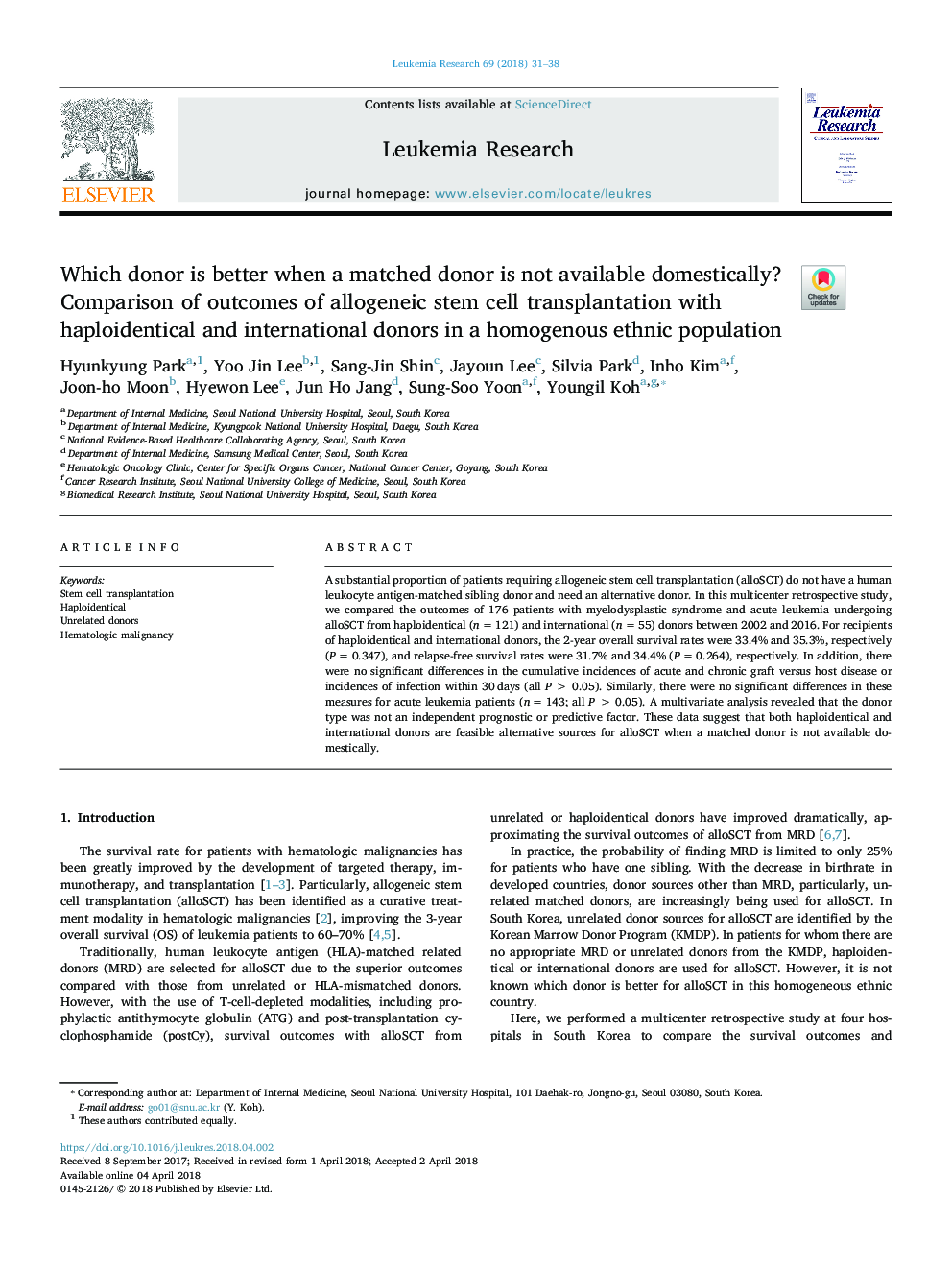| Article ID | Journal | Published Year | Pages | File Type |
|---|---|---|---|---|
| 8453315 | Leukemia Research | 2018 | 8 Pages |
Abstract
A substantial proportion of patients requiring allogeneic stem cell transplantation (alloSCT) do not have a human leukocyte antigen-matched sibling donor and need an alternative donor. In this multicenter retrospective study, we compared the outcomes of 176 patients with myelodysplastic syndrome and acute leukemia undergoing alloSCT from haploidentical (nâ¯=â¯121) and international (nâ¯=â¯55) donors between 2002 and 2016. For recipients of haploidentical and international donors, the 2-year overall survival rates were 33.4% and 35.3%, respectively (Pâ¯=â¯0.347), and relapse-free survival rates were 31.7% and 34.4% (Pâ¯=â¯0.264), respectively. In addition, there were no significant differences in the cumulative incidences of acute and chronic graft versus host disease or incidences of infection within 30â¯days (all Pâ¯>â¯0.05). Similarly, there were no significant differences in these measures for acute leukemia patients (nâ¯=â¯143; all Pâ¯>â¯0.05). A multivariate analysis revealed that the donor type was not an independent prognostic or predictive factor. These data suggest that both haploidentical and international donors are feasible alternative sources for alloSCT when a matched donor is not available domestically.
Related Topics
Life Sciences
Biochemistry, Genetics and Molecular Biology
Cancer Research
Authors
Hyunkyung Park, Yoo Jin Lee, Sang-Jin Shin, Jayoun Lee, Silvia Park, Inho Kim, Joon-ho Moon, Hyewon Lee, Jun Ho Jang, Sung-Soo Yoon, Youngil Koh,
